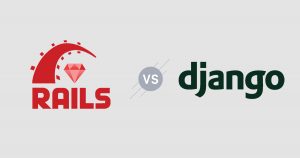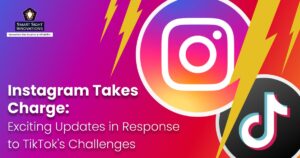 Web developers specialize in one or a couple of web development frameworks. One may go the PHP way, choose Drupal, WordPress, or Joomla or adopt a .Net platform. Then there is Django and you have Ruby on Rails for web development, preferred by top website development services. The debate will continue as to which suits web development best and there are no clear winners. Each has its advantages. How the web development company implements a solution is based on either deciding upon the ease of use or functionality of your website. Let us take a look at each.
Web developers specialize in one or a couple of web development frameworks. One may go the PHP way, choose Drupal, WordPress, or Joomla or adopt a .Net platform. Then there is Django and you have Ruby on Rails for web development, preferred by top website development services. The debate will continue as to which suits web development best and there are no clear winners. Each has its advantages. How the web development company implements a solution is based on either deciding upon the ease of use or functionality of your website. Let us take a look at each.
Age
Django and Ruby on Rails are quite well established.
Django
- Django, based on Python, goes back to 2005, developed to serve news websites but it has evolved to general web development with a community of over 1500 developers on Github and elsewhere.
- It can handle database migration, provide UI for administrative purposes, and handle session management.
Ruby on Rails
- Ruby on Rails was born in 2008 and has over 3400 contributors in the community. It is based on Ruby Language known for its flexibility and an easily understandable syntax.
- Ruby on rails is ideal to create the database structure, services, and pages. It is fast and coding is simple.
- RoR operates on the concept of Do not Repeat Yourself and Setup Convention. However, Django has more or less the same concept.
- RoR facilitates the use of JSON and XML.
Django has a slight edge in that it is older and it is based on Python which is seeing a resurgence in modern times, particularly in AI.
User interface
Both offer an exceptional user interface that delivers an excellent user experience, whether it is on desktops or mobile devices, permitting a host of plugins and add-ons.
Speed
Ruby does emerge a winner by a thin margin of about 0.7 percent.
- Ruby on Rails proves to be faster simply because of its extended library set and plugins. It uses metaprogramming for heavy tasks while allowing code generation from scratch, which speeds up development.
- Django, on the other hand, lends itself admirably to the rapid development of websites and web apps. Django components are independent yet coupled, which means developers need to write less code
Architecture
Django and RoR follow the model view controller process. Django calls it Model View Template but it is not that different.
- Django’s Model defines the data structure and database. The view defines URL Dispatcher based on a regular expression. The template defines the web template framework. Django supports object-relational mapping, multilingual support, and support for RSS and Ajax.
- Ruby on Rails template is applicable to server information taken care of by Active Record. View in Ruby takes care of information in the HTML template that is sent to the controller to be managed by Active View. Model and View are linked by Action Controller to manage requests and browser responses.
Not much of a difference as you can see. Both use different paths but achieve the goal. In the end, it is the proficiency of the web development company in either of these platforms that deliver the expected results.
Learning
- Some website development services may prefer Django simply because it has a shorter learning curve.
- Ruby on Rails takes longer to learn and you will have to make an effort to master independent concepts, which is why Django web developers may be easier to find and cost less.
Database
Django works well with databases like IBM DB2, Couchbase, Cassandra, PostgreSQL, MongoDB, Redis, MySQL, and Apache. Django works with a minimum of 128 MB of memory space.
Ruby is a perfect fit for Microsoft SQL, MongoDB, Postgre, Drizzle, Oracle, Cassandra, CouchDB, Memcached, NoSQL DB, and MySQL. It does require more memory of around 1 GB.
Ruby interfaces with a lot more databases. In the end, it boils down to web developers and their familiarity with databases as well as Django or RoR.
Reasons to choose either of these platforms
- Django is ideal if you need out of box functionality, Python-specific libraries, and stability.
- RoR is best if you desire a project to be up and running in the shortest time, frequent modifications, readable code, and innovative features.
Sites using Django and RoR
- Google search relies on a Python/Django combination. Instagram uses it as well, as does NASA.
- Air BnB, Twitter, and Shopify are all written in RoR.
As a user of Instagram, Twitter or Shopify supported eCommerce sites you will rarely have anything to complain about. Just goes to show that it is the web developer and competence that is more important than the tool.
If you plan to incorporate artificial intelligence and machine learning, then you may lean towards Django and Python.
Summary of pros and cons of each
Pros
- Django is mature, gives you access to a host of plugins and is customizable as well as scalable.
- Django is best for scientific database based sites.
- Ruby on Rails is easy to modify, helps in fast development, has a superior test environment, and gives you access to plugins and gems.
Cons
- Django lags when it comes to handling multiple simultaneous requests and it is too monolithic with tight web component coupling.
- Ruby on Rails is demanding when it comes to the creation of APIs. It has low run-time speed and is not quite flexible.
Which one to choose for your web development?
It is difficult to recommend one over the other except in a few pointed cases. The issues to consider are:
- What kind of website do you wish to develop?
- Choosing a developer familiar with Django or Ruby on Rails: If a web developer has worked only in Django or RoR then it is likely they have familiarity and have built up an extensive library of reusable code. This translates to reduced costs for you and faster development. Indirect factors are location, number of developers in the team, infrastructure, and workload.
- Delays may occur if a web developer has a number of projects in the pipeline. However, if their quote is less and if you can wait then do so. Django or RoR does not make much difference.
The expertise and experience of a web development company in Django or RoR is important. The more experienced they are, the faster you get your site developed with lesser bugs.














